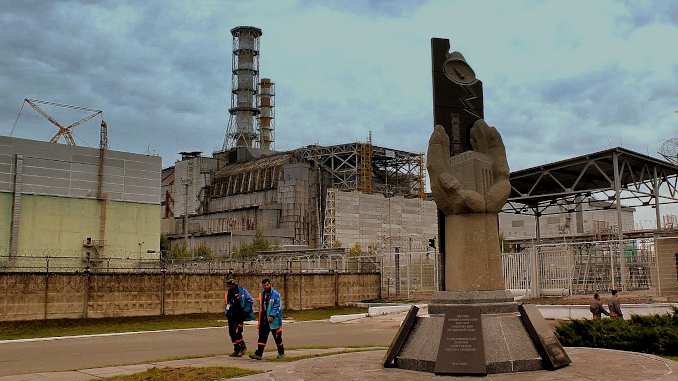
By S.T. Patrick
On April 26, 1986, the world experienced its worst nuclear accident at the No. 4 reactor in the Chernobyl Nuclear Power Plant in what was then the Soviet Union. The International Nuclear Event Scale rates nuclear accidents on a scale of one to seven. Chernobyl was a seven. It’s only competitor in severity is the 2011 Fukushima disaster in Japan.
The exclusion zone reached over 19 miles and over 135,000 people had to be evacuated. It will remain uninhabitable for generations. The response involved over 500,000 personnel and cost what would now be equivalent to $68 billion. Chernobyl wasn’t located in a remote part of Russian Siberia, its effects frozen by the dead cold of the Asian arctic. Chernobyl is located in northern Ukraine and, thus, its strategic situation is even more important as the war in the nation continues.
Depending on what study and what geographic reach is tallied, it has been said that the number of fatalities from the Chernobyl disaster range between 4,000 and 16,000. Over time, as its closest inhabitants age, that number will rise.
Mikhail Gorbachev’s Soviet Union built a barrier around the plant in December 1986 but, by 2017, it was deteriorating. A similar enclosure, the Chernobyl New Safe Confinement, a name that almost tries too hard in its reassurances, was then built so the previous barrier could be removed. The completion of the nuclear clean-up at Chernobyl is scheduled for 2065.
On Feb. 24, Russian troops took control of the Chernobyl plant in Ukraine. It was the first day of the movement of Russian troops into Ukraine and officials had reported that plant staff were being “held hostage.” Mykhailo Podolyak, a Ukrainian presidential adviser, said, “After a completely senseless Russian attack in this direction, it is impossible to say that Chernobyl is safe. This is one of the most serious threats to Europe today.”
The day before, Ukrainian President Volodymyr Zelensky had warned, “Russian occupation forces are trying to seize the Chernobyl (nuclear power plant). Our defenders are sacrificing their lives so that the tragedy of 1986 will not be repeated. This is a declaration of war against the whole of Europe.”
Zelensky was typically grandiose in his predictions and his assessments, yet there is a fear that disaster could once again strike at Chernobyl, which could become strategic fodder in a war or, as those in the alternative research communities would call it, a perfect location for a false-flag operation. Zelensky was predicting disaster to the world in his desperate cry for assistance. “In 1986, the world saw the biggest technological disaster in Chernobyl,” the Ukrainian Foreign Ministry tweeted. “If Russia continues the war, Chernobyl can happen again in 2022.”
The Russian government did state that it had taken control of Chernobyl, but it also claimed that it was working with Ukrainian guards to ensure its stability and safety. There is an understanding Europeans have about the ticking time bomb that Chernobyl could become once again if war or disaster struck near the site. The fear is that the nuclear clean-up that has happened since 1986 could all be for naught with one directed or accidental strike to the facility.
Russia has stated that the taking of Chernobyl was done precisely to limit the U.S.-backed Ukrainian nationalists from being able to stage a nuclear event at the site. The Russian Defense Ministry said that “joint actions of Russian paratroopers and servicemen of the Ukrainian guards battalion will guarantee that nationalist formations and other terrorist organizations would not take advantage of the ongoing situation in the country to organize a nuclear provocation.”
Podolyak argues that the opposite is true, that Russian saboteurs “planned to conduct a terrorist act at the Chernobyl plant to cause a powerful environmental catastrophe.” He said, “It is clear that Russia not only wants to depose the government and replaced it with some puppet executors. It wants to cause maximum destruction in Ukraine, even of environmental nature.”
Chernobyl has been in the American cultural consciousness for the last few years as a 2019 HBO mini-series called “Chernobyl” won a multitude of awards including the American Film Institute’s Television Program of the Year, the Golden Globe’s Best Limited Series Award and three Primetime Emmy Awards. The series looked at the disaster and the initial clean-up efforts.
There are countries that rely on the efficiency of nuclear power, with France being one of them. The French report very few major issues and the reactors have proven safe. That said, events like Chernobyl and Fukushima are generational and just one disaster can change world history.




